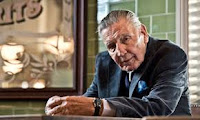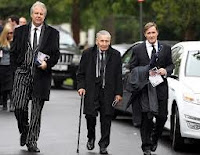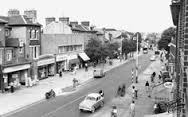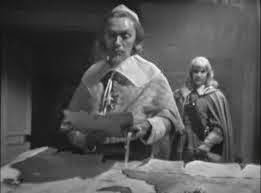
 Roy, who is 95 years old, appeared on the BBC TVs, 'Antiques Road Show', filmed in the Summer and televised on Sunday http://ow.ly/EZBv5 ,where he told expert Graham Lay his Second World War story which he illustrated with a cigarette packet and his Military Cross and Bar, along with a photo of him being presented with a ribbon to his MC by British Army Chief, Field Marshal Bernard Montgomery.
Roy, who is 95 years old, appeared on the BBC TVs, 'Antiques Road Show', filmed in the Summer and televised on Sunday http://ow.ly/EZBv5 ,where he told expert Graham Lay his Second World War story which he illustrated with a cigarette packet and his Military Cross and Bar, along with a photo of him being presented with a ribbon to his MC by British Army Chief, Field Marshal Bernard Montgomery. Graham : "Well there's a photograph in this album which shows two tiny little figures in the distance and underneath the photograph it says 'somewhere in the Western Desert, receiving M.C. ribbon Field Marshall Montgomery' "
Graham : "Well there's a photograph in this album which shows two tiny little figures in the distance and underneath the photograph it says 'somewhere in the Western Desert, receiving M.C. ribbon Field Marshall Montgomery' "Roy : "That's right."
Graham : So one of these figures is Montgomery. Who's the other one ?"
Graham : "You ? And why were you receiving the military cross ?"
Roy : "Because I'd cut two pathways through a minefield at Alamein under mortar fire for the tanks to go in on the attack." http://ow.ly/EZIij
Graham "And you were a mine specialist were you ?"
Roy : "I suppose I knew as much about mines as anybody else did."

Graham: "Now here is something that I'm puzzled by because it's an empty cigarette packet, but what is interesting is that underneath that is written : 'Received with thanks from Field Marshal Rommel.' "
Roy : "That's right. I was doing raids on the French coast to look at the defences for D-Day."
Graham : "This isn't anything to do with Operation Tarbrush is it ?"
Roy : "Yes."
 In Dover, he examined reconnaissance photos which had spotted obstacles just below the waterline off the coast in Northern France was assigned to 'X Troop Commando' led by George Lane and with two others, who were taken by motor torpdeo boat across the Channel and anchored one mile off shore, then took two dingies to the shore, where he, under the cover of darkness, shinned up a post at Onival beach, Picardy.
In Dover, he examined reconnaissance photos which had spotted obstacles just below the waterline off the coast in Northern France was assigned to 'X Troop Commando' led by George Lane and with two others, who were taken by motor torpdeo boat across the Channel and anchored one mile off shore, then took two dingies to the shore, where he, under the cover of darkness, shinned up a post at Onival beach, Picardy.Graham: "This was a very secret operation to check defences a couple of weeks before D-Day ?"
Roy : "That's right. I was looking at what was thought to be an unknown mine. It would have been underwater at high tide so that a landing craft coming in, lowering its door would be blown up. So the D-Day planners wanted to know what this was. Funny enough I found out that all it was. was a block of wood with a German teller mine on top."
Graham: "An anti-tank mine on top ? But they weren't waterproof."
Roy : Laughs. "I didn't have time to check that. I just looked at it and said :"Great. We can handle this."
At this point he gave the 'thumbs up' sign, no doubt imitating the same sign he had made on that beach 70 years before.
With X troop, returned for the next four nights to carry out further inspections and photograph other obstacles on the beach using infrared equipment but on the last mission, with the group, was taken by surprise when star shells illuminated the beach and with George Lane, hiding in the dunes, came under fire from two German patrols.
 Graham: "How many were in your team ?"
Graham: "How many were in your team ?"Roy : "Just myself and the commanding officer, George Lane."
Graham : "He was captured. Were you captured at the same time ?"
Roy : "Yes".
With George, was cut off from the others in the raiding party, who, unable to wait any longer and had swum out to their boat and when the firing stopped, returned to the beach and in a dinghy, paddled out to sea as fast as they could. In the dark and pouring rain, were spotted by a German patrol boat spotted and managed to jettison their photographic equipment before they were taken prisoner. Neither wearing uniform nor carrying identification, was told with George that they would be handed over to the Gestapo and shot immediately in accordance with Hitler's 1942 'Commando Order'.
 With George, was taken to and kept in the cellars of a house at Cayeux-Sur-Mer and 'interrogated' for two weeks about what they had been doing, but didn't say anything, despite being told on several occasions that "if you don't answer the questions, we'll hand you over to the Gestapo and you'll get shot." Was then bound, blindfolded, pushed into a car and taken to a chateaux and in the guard room, was given a cup of tea and some cake and told to have a wash and smarten up because he was going to see someone very important. Was then blindfolded and ordered up a flight of stairs opened the door and finding Rommel standing behind the desk, gave him the courtesy of standing to attention.
With George, was taken to and kept in the cellars of a house at Cayeux-Sur-Mer and 'interrogated' for two weeks about what they had been doing, but didn't say anything, despite being told on several occasions that "if you don't answer the questions, we'll hand you over to the Gestapo and you'll get shot." Was then bound, blindfolded, pushed into a car and taken to a chateaux and in the guard room, was given a cup of tea and some cake and told to have a wash and smarten up because he was going to see someone very important. Was then blindfolded and ordered up a flight of stairs opened the door and finding Rommel standing behind the desk, gave him the courtesy of standing to attention.
 Graham : "What happened to you ?"
Graham : "What happened to you ?"Roy :"I was taken to a French Chateau, Chateau La Roche - Guyard and shown into a big room and standing there was Field Marshal Rommel and looking out of the window was Field Marshal Von Runsted."
Graham : "Two of the most important officers, high ranking officers in that part of the theatre at the time."
Roy :"That's right."
Graham : "I can't believe it."
Roy : Laughs. "I couldn't believe it at the time."
Graham : "What rank were you ? Were you a senior officer ? "
 Roy : " I was a lieutenant and I asked the German officer who was acting as interpreter : "Why was I, a mere lieutenant, taken to see Field Marshal Rommel (left) and Field Marshal Von Rundstedt ? " and his reply was : "Well we know that D-Day is pretty soon, so you are a very important prisoner. He asked me two questions, he said "Was I an engineer officer ?" Well I was actually, but I reminded him of the Geneva Convention and I could only give him my rank, name and number and then he said "Is there anything that you require ? So I said "Yes. I'd like a pint of beer." Laughs. "I'd like a packet of cigarettes and a good meal please" and I was served in his mess and on the table was a Stein of Bier and there was a packet of cigarettes."
Roy : " I was a lieutenant and I asked the German officer who was acting as interpreter : "Why was I, a mere lieutenant, taken to see Field Marshal Rommel (left) and Field Marshal Von Rundstedt ? " and his reply was : "Well we know that D-Day is pretty soon, so you are a very important prisoner. He asked me two questions, he said "Was I an engineer officer ?" Well I was actually, but I reminded him of the Geneva Convention and I could only give him my rank, name and number and then he said "Is there anything that you require ? So I said "Yes. I'd like a pint of beer." Laughs. "I'd like a packet of cigarettes and a good meal please" and I was served in his mess and on the table was a Stein of Bier and there was a packet of cigarettes."The meal consisted of meatballs, or faggots, with potatoes and sauerkraut.
 Graham : "Not this packet ?"
Graham : "Not this packet ?"Roy : "That's the empty packet. Which I kept."
Graham : "As a matter of interest you've brought the miniatures with you, do you have the full sized models ?"
Roy :"I have the full size medals."
Graham : "I think the medal group, plus the story, plus the objects you have, are going to be worth somewhere in the region of seven to ten thousand pounds."
Roy : "Not for sale."
Graham : "Good for you." and the attendant crowd clapped.
 Roy had been told that Rommel always wanted to meet captured men who had been doing something unusual and although Hitler had issued orders that commandos were to be shot, Rommel declined to obey and later said : "Rommel saved my life. He was a very fine German and a clean fighter." With George was taken to Fresnes Prison near Paris (right) and told that they would be hanged or shot. The screams from the other cells were terrifying but after two days the pair were sent on to the castle prison for 300 officers at Spagenberg, in Hesse, Germany, where they rubbed shoulders with a Lieutenant Airey Neave, the future confidant of Mrs Thatcher and Major Bruce Shand, father of Camilla and future-in-law father of Charles, Prince of Wales. They were liberated by American forces in the closing stages of the War.
Roy had been told that Rommel always wanted to meet captured men who had been doing something unusual and although Hitler had issued orders that commandos were to be shot, Rommel declined to obey and later said : "Rommel saved my life. He was a very fine German and a clean fighter." With George was taken to Fresnes Prison near Paris (right) and told that they would be hanged or shot. The screams from the other cells were terrifying but after two days the pair were sent on to the castle prison for 300 officers at Spagenberg, in Hesse, Germany, where they rubbed shoulders with a Lieutenant Airey Neave, the future confidant of Mrs Thatcher and Major Bruce Shand, father of Camilla and future-in-law father of Charles, Prince of Wales. They were liberated by American forces in the closing stages of the War.A few days after their meeting, Rommel and his car were shot up by the RAF and he played no part in D-Day in June and accused by Hitler of being part of the 'July Bomb Plot' to assassinate him, was forced to commit suicide and so, with George, was probably the last non-German to see him alive.
After the War Roy went on to become Principal of Derby College of Art and Technology and remained married to Phyllis, who must have thought she had lost him in shortly after their marriage in 1944. She died when he was seventy, 25 years ago.
Roy, who remains one of the few soldiers who has spoken to those two great rivals of the 1942 Desert War, Fields Marshal Montgomery and Rommel, has said with quintessential self-effacement :
"After a few near misses, I am thankful to have survived the War without a scratch and remember with reverence and deep humility, those who gave their lives."
The MC or Military Cross is granted in recognition of 'an act or acts of exemplary gallantry during active operations against the enemy on land to all members, of any rank in Our Armed Forces'.
Roy received his first MC in 1941 in recognition of his service as a second lieutenant with the Royal Engineers North Africa in 1941 and his second in 1945 for his service as a lieutenant in Northern France.




.jpg)








.jpg)
.jpg)

































